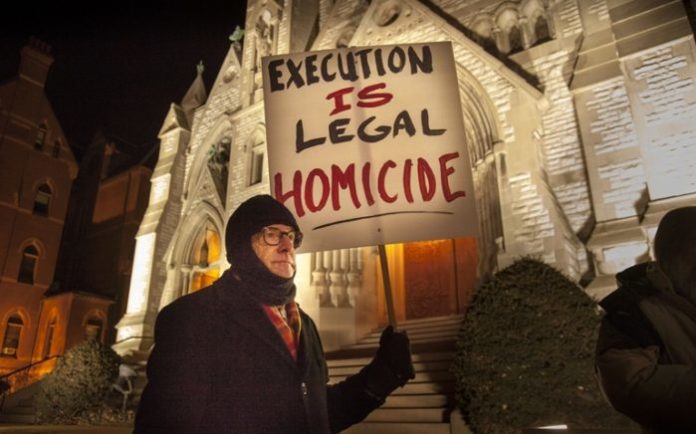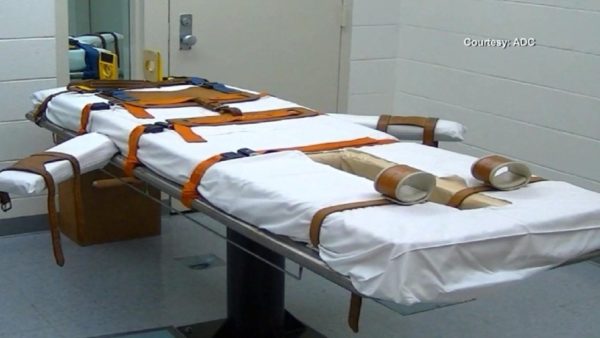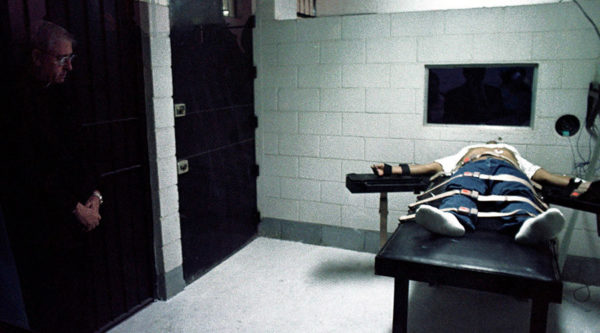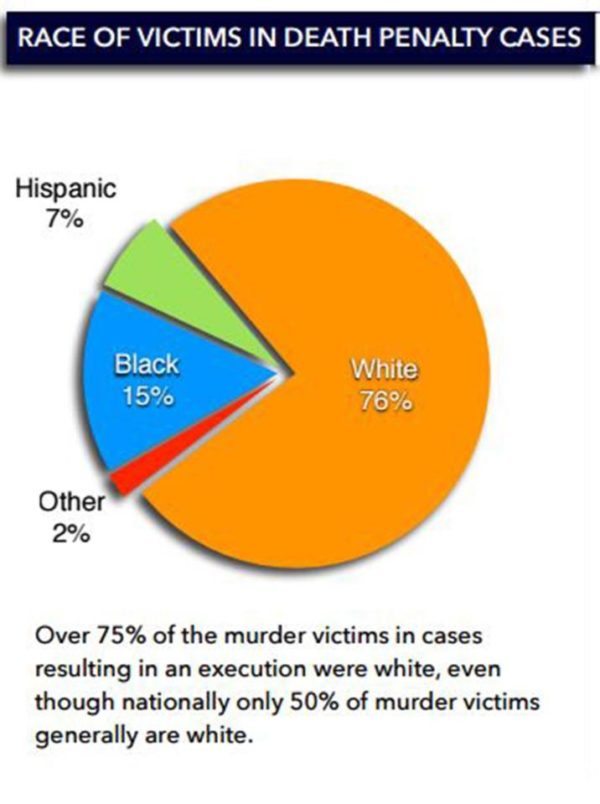
The U.S. state of Arkansas had planned to execute eight inmates on death row within 11 days, but was blocked last minute by a series of court orders, which began on April 15.
The Stay of Execution Orders were filed by attorneys of the convicted murderers and anti-death penalty activists who are keen to see executions stopped outright in the state.
Don Davis, 54, and Bruce Ward, 60, were scheduled for execution on Monday night. However, their attorneys filed for Stay of Execution at the state’s Supreme Court. The court granted the application.
The court said it granted the stays due to McWilliams v. Dunn, a case pending before the Federal Supreme Court involving the question of whether indigent defendants are entitled to independent expert witnesses.
According to the inmates’ attorneys, the ruling of the McWilliams v. Dunn could apply to their clients. Oral arguments for this case are scheduled to take place on April 24 at the U.S. Supreme Court.
Stacey Johnson, 47, and Ledell Lee, 51, were also scheduled to be executed on Thursday, April 20. Both men were convicted of murders in 1993. The two have consistently said they are innocent of the crime. The Innocence Project, an organization working to help inmates on death row joined Johnson’s attorneys to file a request for a Stay of Execution in the Sevier County Circuit Court.
“Newer methods of DNA testing that have never been performed in the case could provide compelling proof that Johnson didn’t commit the crime,” the Innocence Project said in a statement.
Before these legal battle sprees, on April 15, a federal judge ruled that inmates on death row in Arkansas have the right to challenge the use of the sedative drug midazolam in the execution. District Judge Kristine Baker held that the men have the right to challenge a drug protocol that could expose them to “severe pain.” Baker cited troubled lengthy executions in Alabama, Arizona, Ohio and Oklahoma that used midazolam. In fact, some states have barred the use of the drug.
It is said Arkansas’ supply of midazolam would expire on April 30. State governor Asa Hutchinson said in February that the state would speed up the killings of inmates on death row before its supply of the drug expires. He has been labeled as a strong proponent for the death penalty. Anti-death penalty activists have lashed out at him for his stance on the issue.
Manufacturers of the midazolam drug said they are against any state using their drugs to kill people. The Arkansas Department of Corrections said in previous court filings that it doesn’t have a way of obtaining more of the drug as manufacturers have declined to supply it to the state.
Commentators say if Arkansas had been allowed to execute all eight inmates as planned, it would have been the most people put to death by a state in such a short timeframe since the Federal Supreme Court reauthorized the death penalty in 1976. Only Texas has executed six inmates in an 11 day time frame.
Meanwhile, Arkansas state Attorney General Leslie Rutledge has vowed to press for the killing of two inmates whose application for a Stay of Execution was refused by a lower court.
“The families have waited far too long to see justice, and I will continue to make that a priority,” Rutledge said in a statement.
Due to Rutledge’s statement, the American Civil Liberties Union has officially joined the legal battle to save the two inmates from being executed.
Activists against the death penalty have been holding public rallies in the state to garner support against the execution of the inmates. On the other hand, families of the victims have also been pressing for the execution to happen, claiming it would serve them justice.
The United States remains one of the very few western democracies left that still executes people. The death penalty is legal in 31 out of the 50 states. Currently, it is estimated that there are almost 3,000 inmates with death sentences. On average, each convict will spend 15 years waiting to be executed. The Sun reports that there have been 1,442 executions in the United States since 1976.
This article (Court Stops Execution Spree in Arkansas, State Vows to Continue with Killings) is a free and open source. You have permission to republish this article under a Creative Commons license with attribution to the author and AnonHQ.com.
Supporting Anonymous’ Independent & Investigative News is important to us. Please, follow us on Twitter: Follow @AnonymousNewsHQ









Propably cutting some loose ends so that real information can fade away.